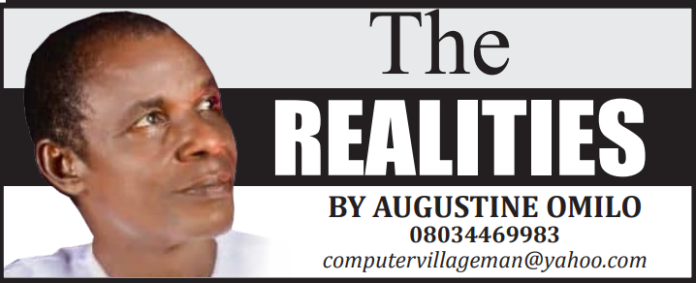In today’s Nigeria, each time the issue of poor rewards to pensioners props up, attention gets focused on the type of scheme being implemented. While the Nigeria police retirees blame their ugly plight on non-creation of special scheme for them, those that disengaged from the conventional civil service view the Pension Fund Administrators (PFAs) as their ache enemies. The schemes are not to blame. Rather, implementation, the grossly depleted naira value and imbalance in the reward system remain responsibility for scheme administration.
Pension represents a regular income paid by a government or financial organisation to someone who no longer works, usually because of old age or health. The Cambridge English language dictionary defines it as; “An amount of money paid regularly by the government or private company to a person who does not work anymore because they are too old or have become ill”. The intention is normally to ensure that men and women who have contributed in one way or the other to the economic growth of their societies at their youthful ages do not suffer from deprivation later in life.
In Nigeria, one of the principal reasons a lot of persons of working age chose in the past to join the civil service or the organized private sector (OPS) was the benefit of being paid regular income by way of pension after retirement.
Whereas the government operated the Defined Benefit Scheme (DBS) which was heavily dependent on annual budgets without funding, the organized private sector functioned with Contributory Pension Scheme (CPS). So many challenges were posed by both methods. For the government, the burden was becoming too heavy to bear alone. The private sector on the other hand was faced with irregularities on the part of pension fund managers who functioned as company secretaries.
Resolving the unpleasant pension issues, led the federal government of Nigeria under the leadership of Chief Olusegun Obasanjo who served as president between 1999 and 2007 to introduce the Pension Reform Act of 2004. The Act made it mandatory for the employer to contribute 10% of the employee’s monthly income into the scheme while the employee contributes 8% of same to the pool every month. This implied that 18% of an employee’s income is set aside for him every month with a view to depending on such savings at old age, especially after retirement.
According to the Act and contrary to the beliefs of many Nigerians, small and medium enterprises with 3 workers and above are qualified to participate in the scheme. And even self-employed individuals were captured in the system. This fantastic reform was patterned after what obtains in advanced counties such as the United States of America, U.S.A and the U.K. But unfortunately, the management of the system, as usual with most economic policies in the country has remained very poor.
Indices from the Pension Commission of Nigeria, PenCom show that only about 10M (15-17%) of the country’s working population has so far been captured in the retirement benefit system. This is unlike the U.S.A or the U.K where more than 50% and 70% of the labour force respectively have been enlisted respectively. Over 30 million Nigerian workers were originally expected to be benefiting from the provisions of the Act before 2024.
To worsen the Nigerian scenario, records have it that about N7b was paid as fines by organisations that deducted dues from workers but failed to remit same to Pension Fund Administrators, PFAs.
Additionally, almost all the states in the federation owe their retired citizens several months of unpaid pensions. There are many of them that have not even paid the lop some of the workers’ retirement savings that represent their gratuities. Harmonizing the difference between the pension system when minimum wage was N7000 and when it became N18,000 have been an unresolved issue of concern to governments. To say the least, many retirees do not even know what they are actually entitled to after disengaging from active working life since individuals’ retirement status are not uniform.
Just as the idea of putting in place, a robust pension scheme was the brain child of the federal government, it is only logical for her to, as a matter of urgency commence a process of rectifying all the prevailing anomalies in the system. This is a big task that may require huge finances as well as deployment of skilled personnel equipped with necessary information technology tools. Actuaries, superannuation and annuity experts must also be assembled to work with specialized software developers who can focus on the peculiar nature of pension management in Nigeria.
The segment of the society, especially public servants and labour activists who are given to always blaming the government for the plight of retired workers must have a change of heart.
They must focus on the reward for workers that have been made worthless by the value of the nation’s currency and the need for overhaul in the patterns of remuneration while in service among other approaches to resolving the issues.


